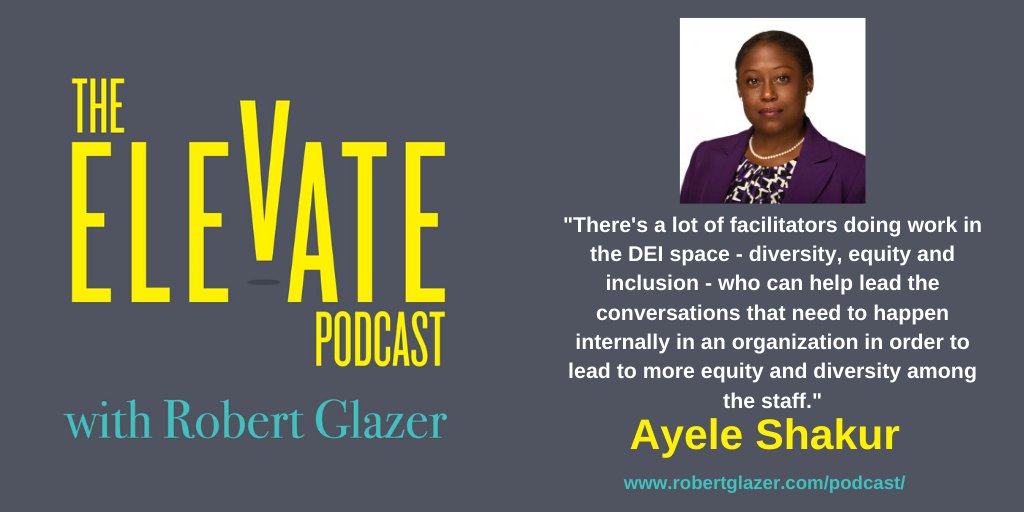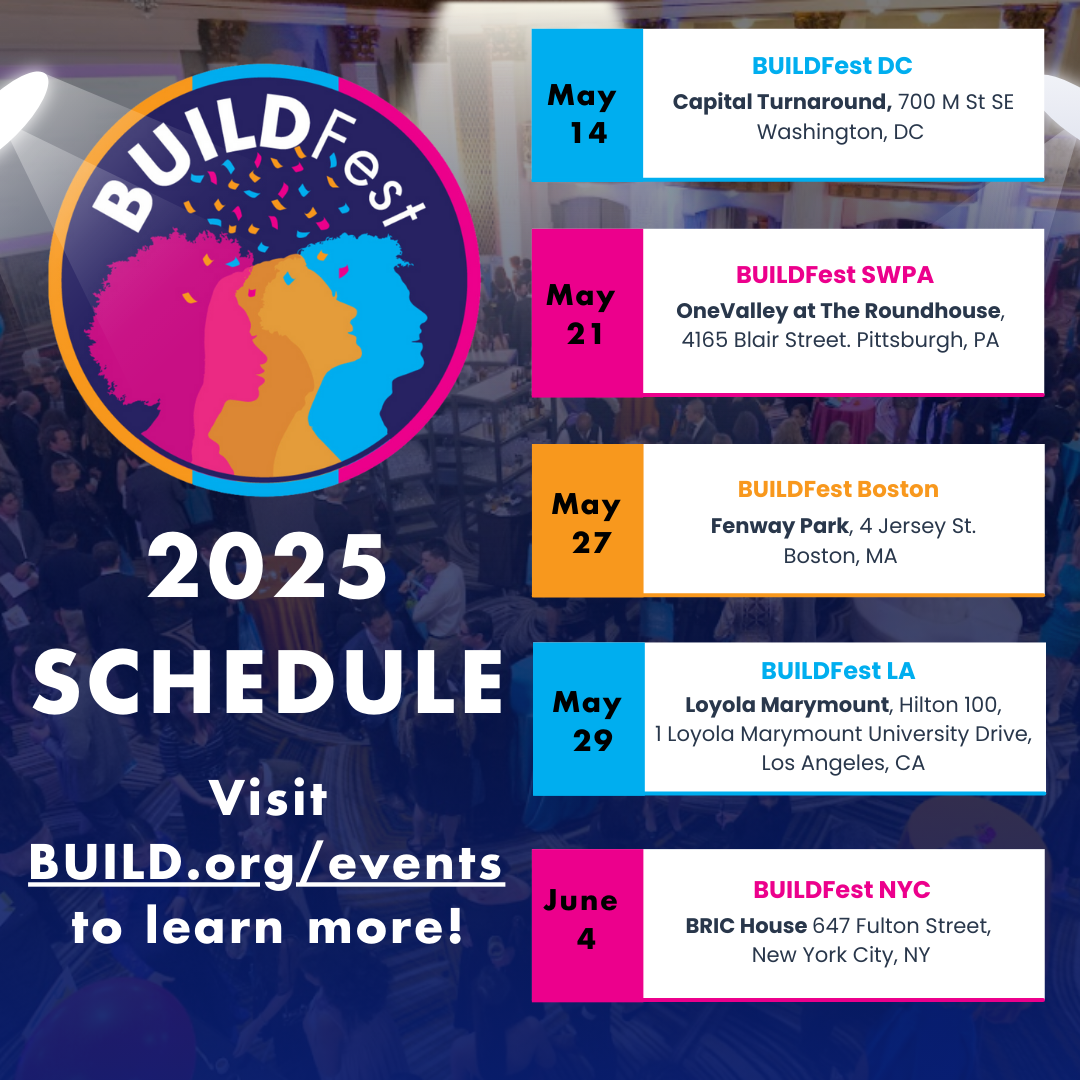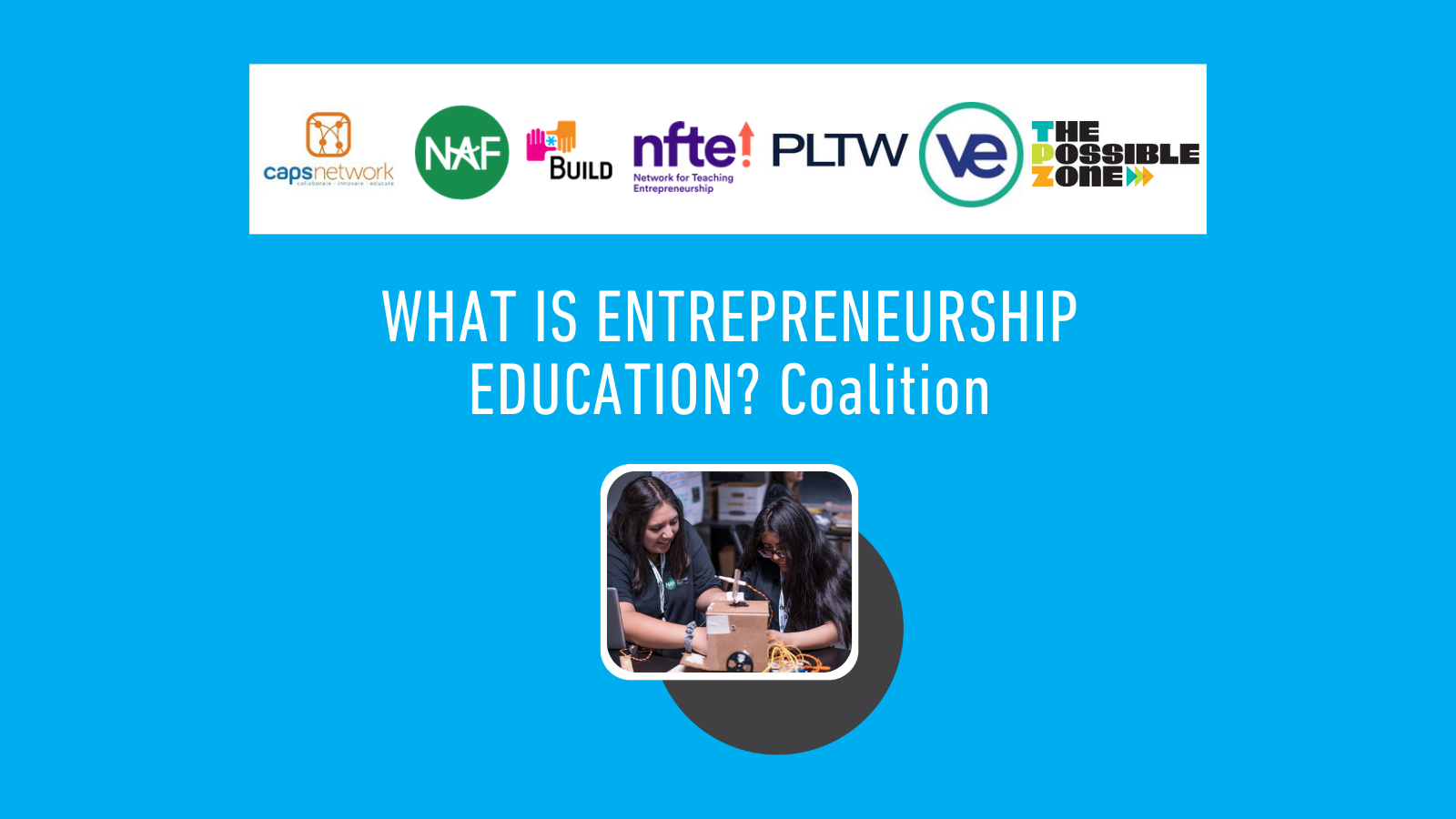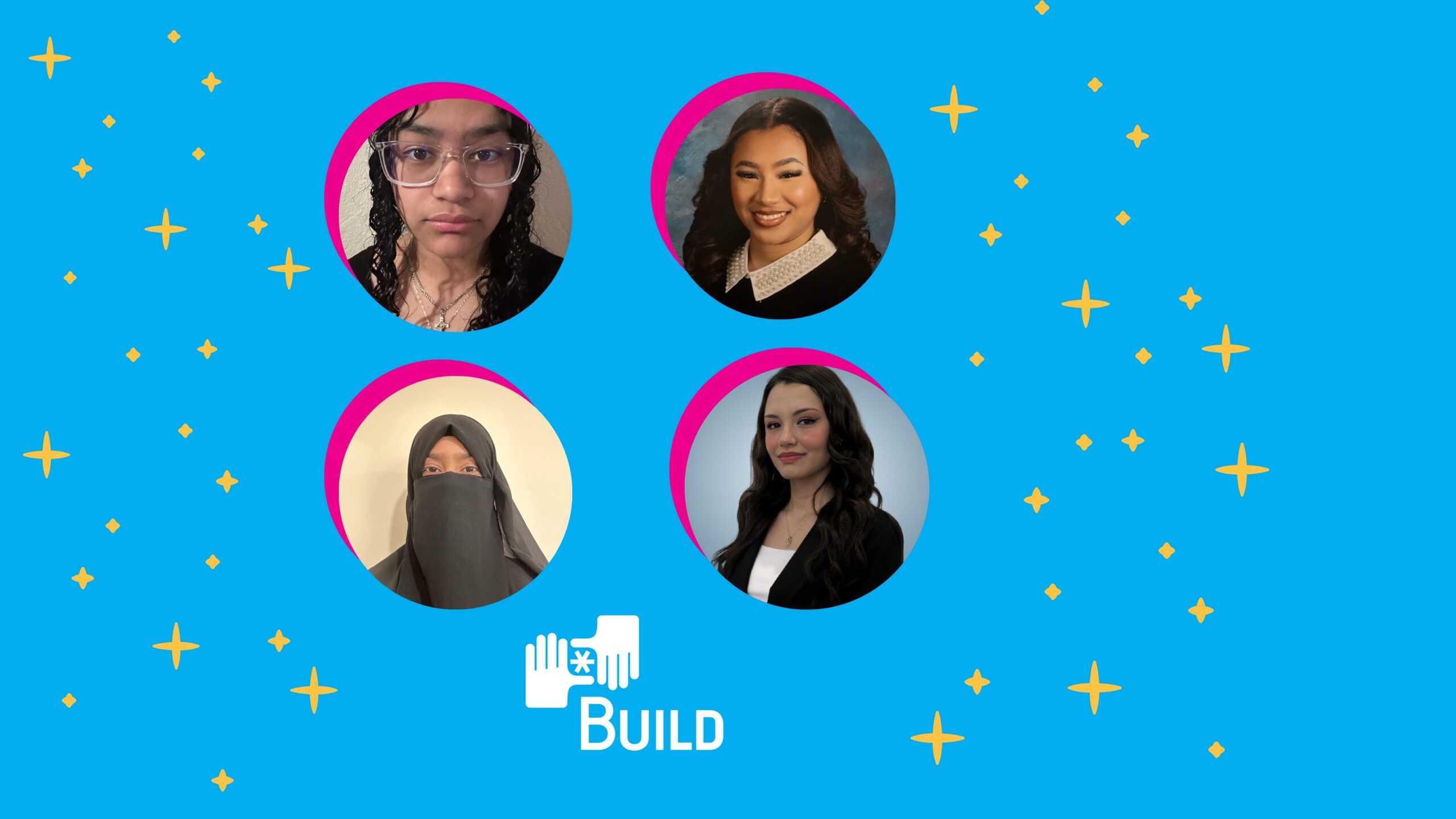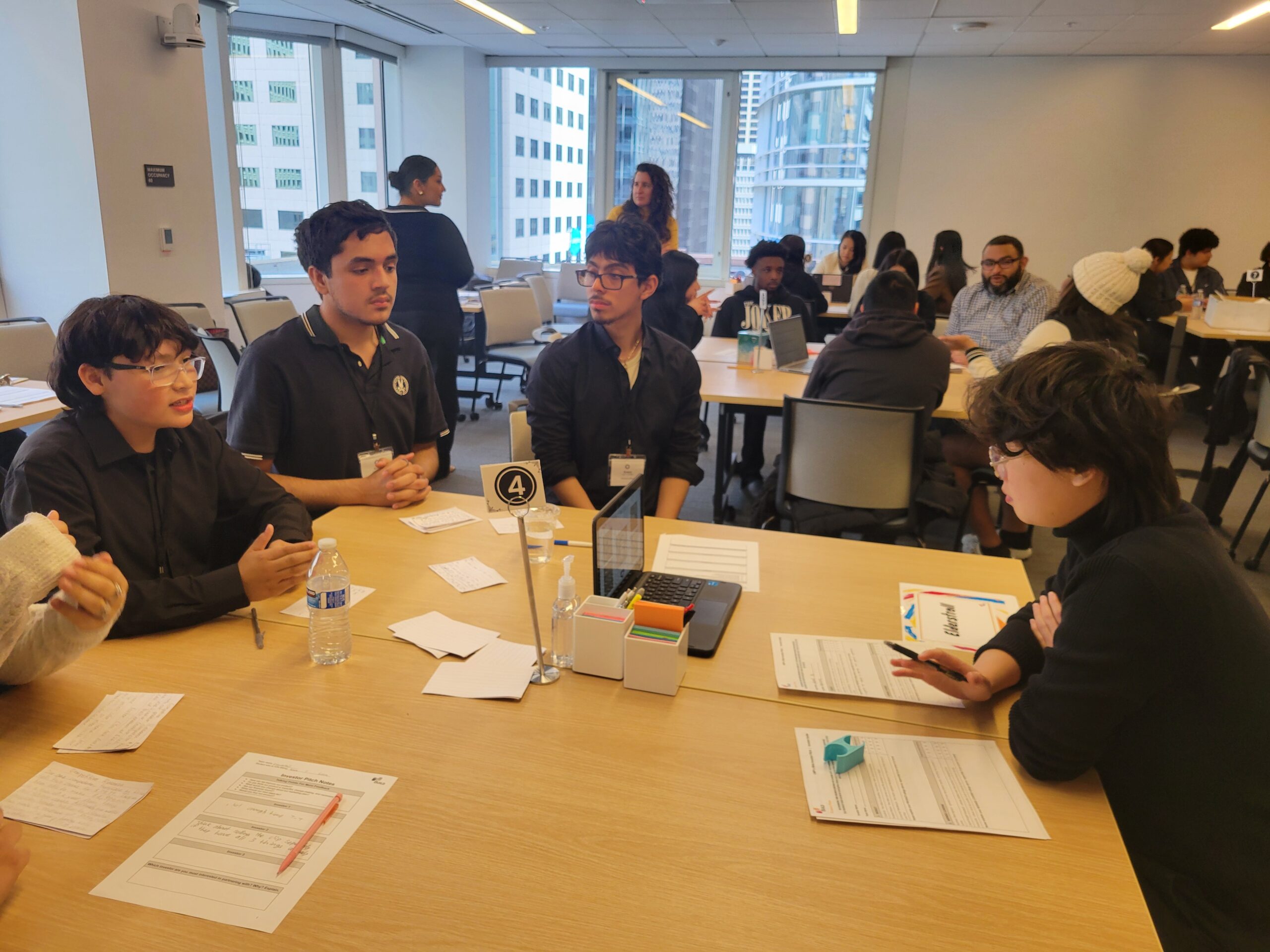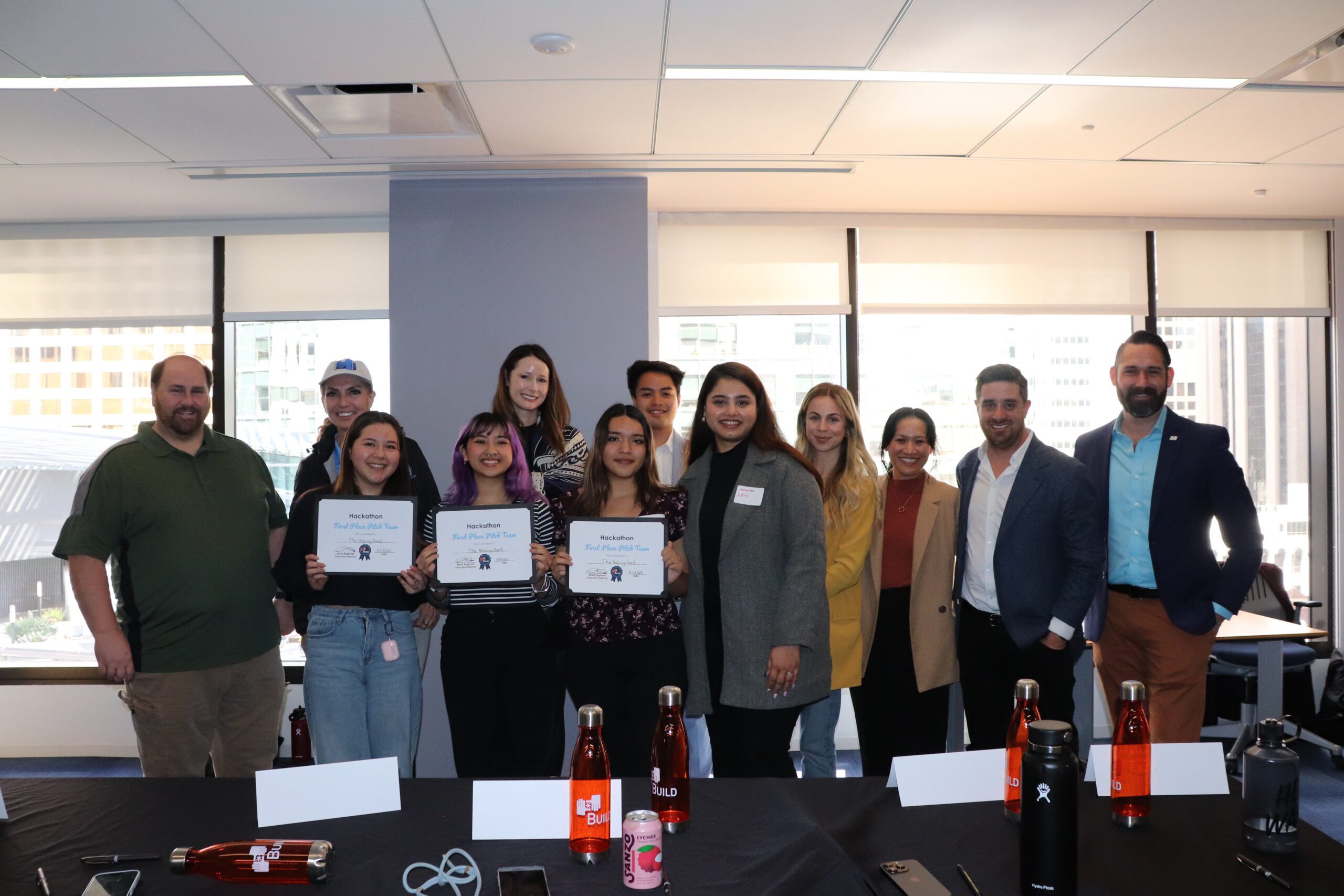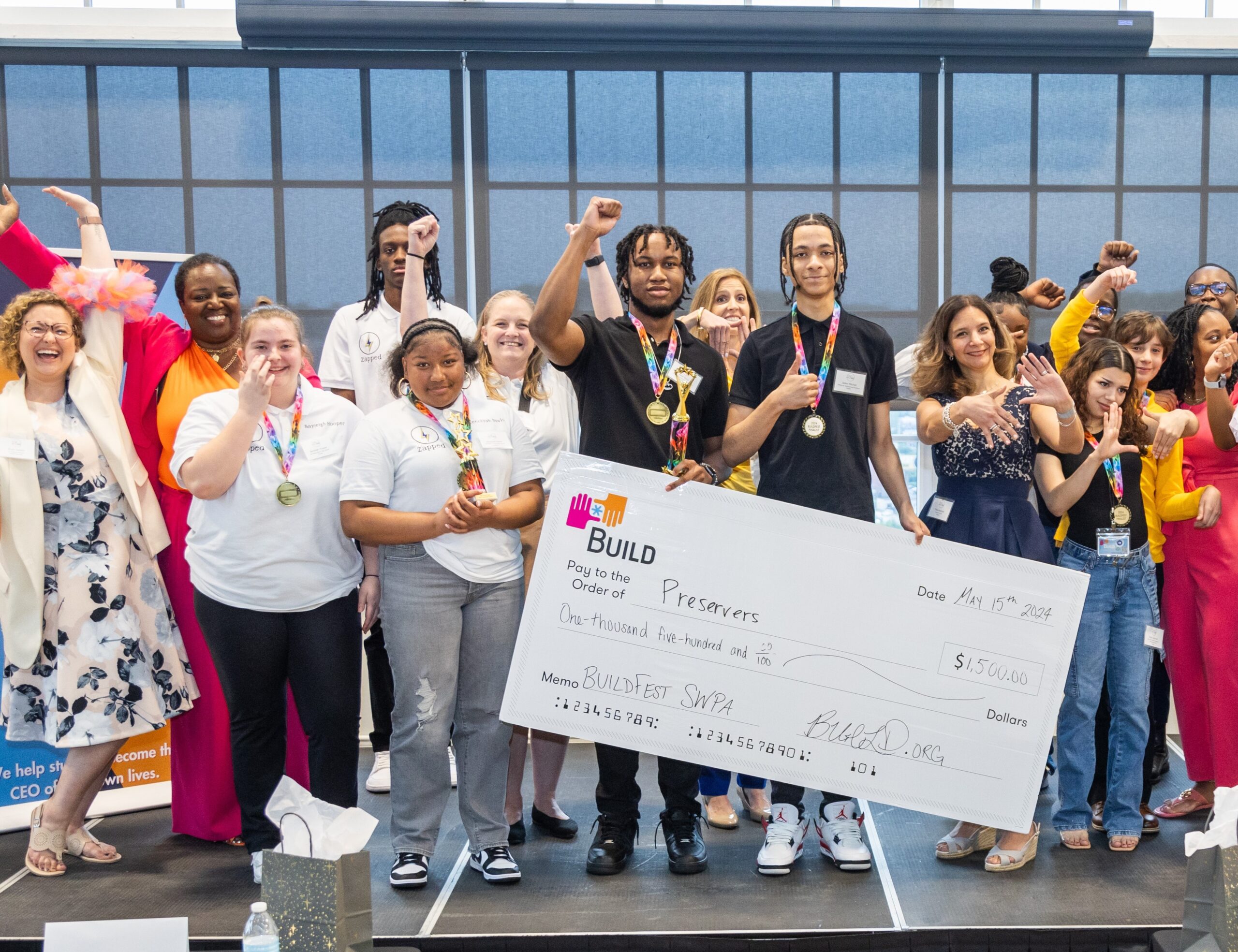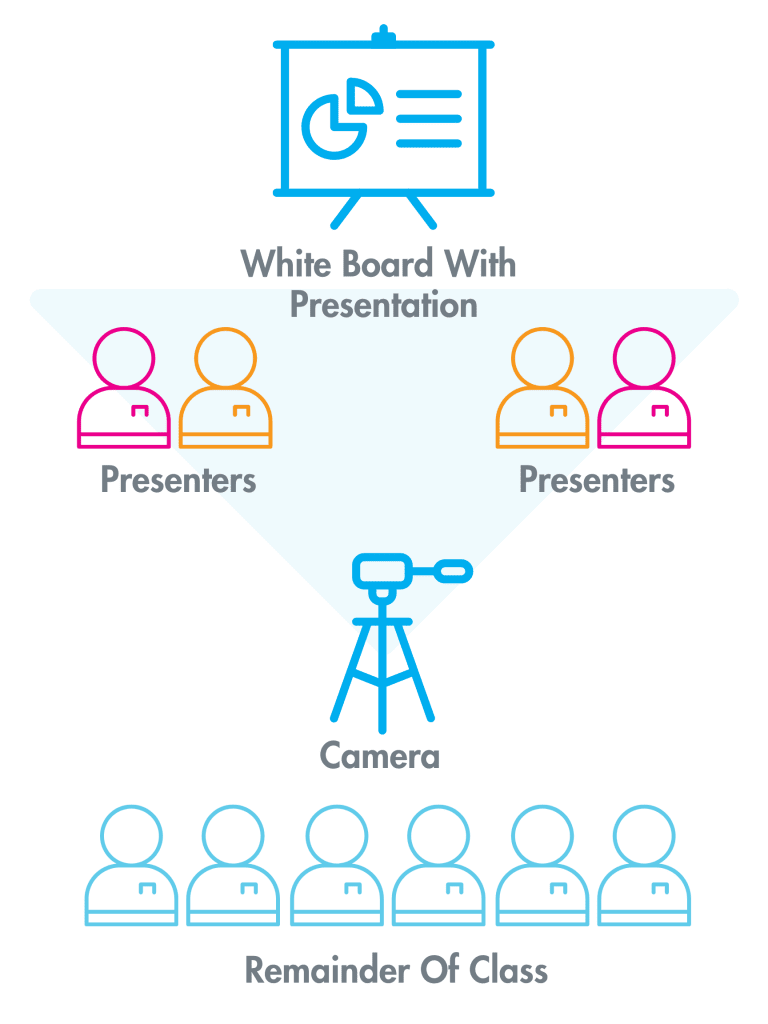The Elevate Podcast is a podcast about achievement, personal growth and pushing limits in leadership and life. Podcast Host Robert Glazer chats with world-class performers who’ve committed to elevating their own life, pushing the limits of their capacity and helping others to do the same. This week, Ayele joined host Robert Glazer on the Elevate Podcast to talk about how education can be improved to create more opportunity and equity for underserved communities.
Podcast Highlights
Robert Glazer: Can you talk a little bit about the BUILD model? I think it goes to the heart of what’s wrong with the educational system in certain communities.
BUILD is actually focusing on the lower performing schools. We introduce young people to this concept of entrepreneurship and we actually help these young people come up with business ideas to pitch for seed funding from investors who put up the money for them to launch their business. We surround them with wonderful mentors from the business community who come into their classrooms on a weekly or biweekly basis to help them bring those businesses to life.
When you’re not really crazy about writing skills, but you need to write that business plan so that you can actually be able to make the pitch and be able to bring your business to life. Those are the types of things that make learning tangible.
Robert Glazer: How does student interest make the difference between students dropping out of school vs them not dropping out?
Ayele Shakur: You combine dull, irrelevant content with low expectations. That’s where you get into the issues around race and class. A lot of times when you are at lower performing schools in under-resourced communities, you have some amazing teachers in those schools. They’re working incredibly hard and really pouring a lot of love and attention into young people. But then you also have a subset of teachers who have low expectations. And sometimes it’s done just out of benevolence or we don’t want to push the young people too hard or too far. Other times there’s more of an underlying implicit bias that’s built into that. You end up with many black and Latino youth that are in schools where they’re not being pushed. They’re not being given any of the advanced work or the enriching content or the enrichment classes. They’re not getting the AP classes. They’re just not getting the level of instruction that they need in order to actually thrive academically. And very often, there’s some students who don’t even get the prerequisite requirements that they would need to be able to go on to college or when they get to college. They have to take all sorts of remedial courses because they’re writing and math skills are not strong enough. So that’s really where you see these equity issues playing out.
We've historically referred to them as achievement gaps. Really looking at the gaps between the achievement of Black and LatinX youth compared to their White and Asian peers. But more recently, we've evolved that conversation as educators. We realized that what we're looking at here is opportunity gaps because many Black and Brown children don't have the same opportunities for enriching, learning experiences that their more affluent peers have.
Robert Glazer: So, I mean, you’re probably one of the best people I could think of to ask this question; What do you think the school system of the future needs to look like? Both to make an equitable system, but also to give people the different opportunities that they need to figure out what it is they want to be and do?
Ayele Shakur: That’s a great question. BUILD is helping to lead an initiative called Open Opportunity Massachusetts. It’s a cross-sector group of educators and government officials and business leaders and university partners and employers coming together to answer just that question. How do we reimagine education, starting here in Massachusetts and specifically in Boston for doing this initial work? One of the things we’re really focused on is the idea of a campus without walls.
With the world of covid, where all students are learning virtually, it actually opens up a whole lot of other opportunities that we never had before when all learning had to happen in your assigned school, in your neighborhood. So, it’s opening up a lot of really interesting conversations.
Then, how do you bring in the employers and your university partners to that conversation? So that you’re getting that real world project-based learning with internships and job opportunities after school and over the summer. Then, how do you bring the wonderful enriching instruction from some of the out of school time providers and in school partners, in addition to BUILD, the debate league and other programs like BAM, which is becoming a man. There’s a lot of other great nonprofits and after school and out of school time providers that can really help create a full enriching menu of offering for our young people.
Robert Glazer: My son had this young, enthusiastic teacher and he said, “your kids won’t remember what they learned in my classroom, but I just want them to remember that they liked learning about history.” It just seems like we’re way too far on these skills, on one side. But you’re saying we don’t have enough expectation on the other side and that this massive achievement culture is just destroying the fun in learning. And they’re like totally opposite problems, right?
Ayele Shakur:
I know it's hard in the middle of a crisis to think like, what are we learning? But that's actually helpful in reimagining education. The fact that students are learning online, I think once we get past the shock and awe of all of that, and as we think about learning in the fall, there's an opportunity for students to be more self-directed, to really follow their passion and to do personalized learning where students are learning at their own pace.
Right now, we have a one size fits all approach to education that is failing most. For some students it’s too slow and for other students it’s too fast. But you’re all stuck in that room and you’re going through twelve mind numbing years of education.
I’m hoping we’ll start to see more and more of that type of shift, particularly since we’re not going back to school as we used to know. With COVID, there’s going to be so many modifications and so much of these blended experiences, part online and part in person. And, you know, there are a lot of educators like myself out there hoping this is the wave of the future in terms of where we can push things with the help of technology, combined with what happens in person in the classrooms.
Robert Glazer: With the amount of people who have made programs free recently, it’s kind of democratizing the content part of education.
Ayele Shakur: Absolutely. There’s so many open educational resources and a lot of parents were not aware at all that they existed. Another great thing that’s come out of Covid is that we now have devices and Internet coming into households that may not have even had the laptop. The schools were able to mobilize and get that done. Now, we haven’t solved all the connectivity issues, but people are really working on that. Across the country, people are looking at creative ways of fixing the digital divide. If it took a virus to get us there, that’s progress, no matter how you look at, to make sure that every family has access to the Web.
Robert Glazer: It’s June 2020 and there’s a lot of organizations, companies, nonprofits and universities that are all confronting their own diversity issues and shortcomings. I know you’ve had an incredible session with a bunch of the students really talking about it from their own perspective a few weeks ago. Also, there’s a lot of leaders struggling. This is new for them. And I know you actually had to deal with this.
Ayele Shakur: First there is sort of the acceptance that, oh, we need to do something differently and move in a different direction. The first step is acknowledging that there’s work to do in this area. Next is bringing in some consultants, experts, facilitators who can help with that process, because there are a lot of people now who are doing work in the DEI space with diversity, equity and inclusion, who really can help lead and guide the conversations that need to happen internally in an organization in order to move towards more equitable, more equity and more diversity among staff and positions of power within an organization.
Find an approach to say we are going to diversify our staff. We are going to diversify our board.We’re going to look at our leadership team. It’s looking at your vendors. Who are you spending money with? It’s looking at every aspect of your company or organization to see where there are issues around equity and inclusiveness. And that takes willingness to move in a different direction. Then being willing to have those courageous conversations that are carefully facilitated. I don’t recommend that folks try this at home. Don’t do it without facilitation. Because these are uncomfortable conversations. You want to make sure you’re bringing in experts that can help guide the conversation and guide the leadership team in what that process should look like.
You mentioned the town halls that we did at BUILD. And I was really pleased to be able to do that. We had that facilitated as well. We were very fortunate to have a member of our board who is a DEI professional for a number of companies, and he’s done it for many years. And one of the things he pushed for was storytelling. You know, we’re going to just hear from people and let people share their stories. I’m an African-American woman and I was sort of planning this town hall and I wanted to have some slides and a whole agenda. And he said, no, we’re going to tell stories. He’s the expert. And we’re going to go with that. And it was it was a really powerful experience I have to say. As I was sharing my story, I got kind of emotional.
And some of our white allies also shared their stories, which then makes it a safe space. You have to establish the safe space at the beginning of these types of conversations. But it was just great to hear the various perspectives and to hear where people are in their journey.
And that is going to take courageous conversation. But more than anything, it takes people being willing to take that first step and say, okay, we are willing to go on this journey to change and to move in a different direction and dismantling this.
Robert Glazer: Yeah, the storytelling was just incredibly powerful both here in the last couple weeks. And I think that’s had the biggest impact on me. I don’t think in any context anywhere it works well to tell people how they should feel and what they should think. I’ve never seen that as a recipe for success. But, are there two parallel conversations? Is there like a team conversation in a getting the issues out in the organization bottom up? And then it seems like there’s a leadership conversation of people still wanting to understand the why or what is our goals or what is the outcome look like. It almost seems like those are two different tracks that you need to pursue.
Ayele Shakur: Yeah, I think there’s the conversations you have as an organization. And then the leadership team does need to grapple with whatever the issues are coming from the top. Because alot of these structural decisions are made at the top. So, the leadership team always has work to do in these types of facilitated conversations.
These structures were put in place hundreds of years ago, many of them, and some more recently, like 50 years ago. But those structures exist and it’s very possible to be a white person in the suburbs, so far removed from the issues. Almost like you’ve got blinders on. You can’t even see those issues that are at play.
There’s a certain level of work that white people need to do in studying and reading and deconstructing the narratives that are based on false premise. That’s why there’s all sorts of pieces in there around like meritocracy. And did you work hard enough for it? And survival of the fittest. Like, there’s all these. Narratives at play that help keep structural racism in place. And when you really start to unpack those narratives… there’s a lot of great books that have been written, a lot of great articles, they’re popping up even more now.
Structural racism’s gone back for hundreds and hundreds of years and it’s just not taught in school, like we sort of gloss over. I was reading an article that talked about what most white people and even a lot of our kids of color learn in history. Black history is just slavery and then civil rights with Martin Luther King and then Obama and that’s it. That’s the extent of what you hear.
There’s so much in there about slavery as a capitalist system and the construct of race as a way to suppress uprisings among the poor white workers. In that time, you could actually say to the poor white workers, you’re better than these black people who we’re enslaving. It became like part of the mind game that was used to suppress, just to keep capitalism in play. There’s all sorts of pieces. You look at the history of our cops and the police force, where some of the slave catchers would go in and catch slaves up north and bring them back down to the south. So that’s adversarial relationship between the police, many of who were part of the KKK. If they weren’t dressed under the hoods, the police was just ignoring all of the abominations that were taking place during Jim Crow.
There’s a wonderful book even about our prison system, “The New Jim Crow”, that looks at all of the racist practices in our criminal justice system that explain the mass incarceration rates that we have, which is so abnormally high for people of color. So, it’s really just unpacking. It’s almost like learning another language.
Go do the research, do the readings, and without any shame or guilt. Just learn and open your eyes to history that was never properly taught in the first place in school.Once people have that deeper level of understanding, then the natural reaction is, okay, How do we dismantle some of these racist systems that are holding in place the structures that don't belong in a modern world?
I believe that these are lessons that we’re getting out of this time of COVID, combined with all of the Black Lives Matter and this heightened awareness of race and inequality. We were already talking about the economic inequalities with all of our businesses shut down. Then we add a layer of racial inequality and there’s got to be a wakeup call in all of this.
Robert Glazer: And to the leaders who are who are taking themselves on their educational journey, but are maybe a little bit embarrassed by it and worried about saying the wrong thing. How would you encourage those folks suiting up that’s it’s not going to be perfect?
Ayele Shakur: It’s not going to be perfect. And I think, you know, even leaders of color, we have to watch what we’re saying and double check the wording because you don’t want to offend. You want to say it right but where you don’t sound angry. that’s just part of the process. That’s why we call them courageous conversations. Uncomfortable conversations. We need to be comfortable with the discomfort. Understanding that the journey is a journey. It’s okay if you say something and it lands wrong because I think we’re in a place right now where people are trying to assume some positive understanding.
You just have to kind of just take that leap. It’s like riding a bike ride. When you learn to ride a bike, you fell off a bunch of times. But you knew at the end of the day, you wanted to be riding free, and so you got back up and kept at it. This is all a learning journey.
When you go on that journey, you have to get in there and realize that we’re gonna take all of the layers back.
Robert Glazer: So, bring it back to BUILD. How do you think BUILD positions itself as part of the solution to these problems and where people could get involved?
Ayele Shakur: One of the biggest issues is that isolation and segregation and siloing. It might sound strange to even be talking about segregation in 2020, but many of our students are in schools that are majority black and brown. Young people could be 90 percent, 98 percent in some cases. That means that there are many white children that go to school in all white environments and live in white neighborhoods. By adulthood, people don’t know each other.
That’s why this social capital piece is so important. And in BUILD, we actually have a core value called Bridge Communities. We’re very intentional about bringing together our young people. The majority are young people of color and we bring them together with mentors whom the majority are white people from the world of business.
We’re very intentional about making sure that there is diversity in those sectors as well. But because many of these companies are not diverse enough, you have to search for the people of color in these companies. That’s a learning experience where we’re working with our partner employers to examine their own practices. So, in BUILD, it’s really about those volunteer opportunities. You can be a mentor where you’re really going deep in a relationship with a young person of color. Again, helping them build their business, so, you have the mutual language of business. You talk about profit and loss in target market and all these wonderful things while you get to know each other. Many of our young people, they’ve never been downtown in one of those high rise buildings, standing in a boardroom, doing a pitch, talking about a business. But now they have the idea that hey, I belong downtown in those boardrooms just as much as I might belong on that basketball court or hanging out at my school cafeteria. That sense of belonging is really key. And it works both ways. We bring our kids downtown into those corporate environments, but then we bring those corporate folks into our communities to visit the partner schools where our students attend school.
It takes down those silos. It takes down that lack of understanding. It builds empathy on both sides and it builds relationships on both sides. And once you do that, that's when you start to open doors and you start to open opportunity. When you actually have people that you know by name and by need. It's no longer this person or that group that's over there. It actually becomes somebody that's in your social circle.
But it’s those small conversations along the way that helps to lead a young person to a place of success. If anyone’s like, what do I do? How do I make a difference? The first thing is to go volunteer. Be a mentor. Be a trusted adviser. Find a group, an organization like BUILD, where you can actually get involved in a young person’s life and then start opening those doors, helping them build social capital and building opportunities.
